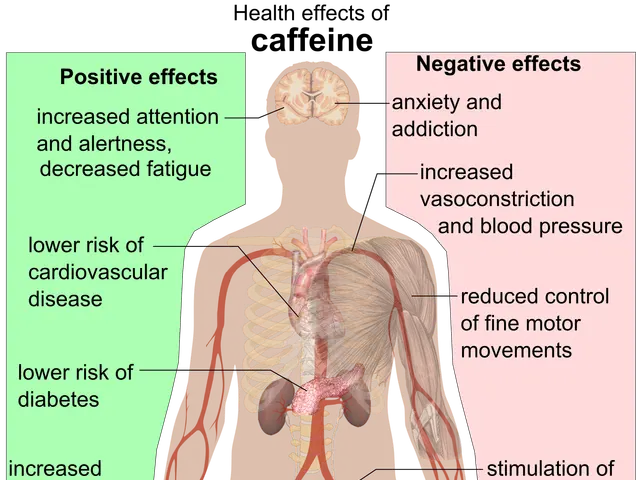Reducing Dementia Risk for Type 2 Diabetes Sufferers: Exploring Potential Habitual Prevention Strategies
Lower Dementia Risk for Type 2 Diabetes Patients Through Healthy Lifestyle Choices
There is an increased risk of dementia for individuals with type 2 diabetes, but recent research suggests that adopting certain healthy habits can potentially mitigate this risk. The study, published in Neurology, found that combining a healthy lifestyle with diabetes management may lower the risk of dementia, particularly for those with diabetes.
Understanding Dementia Risk Factors
Dementia is a collection of symptoms that affect memory, thinking, and reasoning, often worsening over time. While age and family history can increase the risk of dementia, other factors may be modifiable. Smoking, excessive alcohol consumption, and obesity are all known risk factors for Alzheimer's disease and related dementias.
Diabetes is also a risk factor for dementia, particularly type 2 diabetes. Managing diabetes well can help reduce the risk. Researchers continue to explore how lifestyle changes can improve health outcomes and reduce the risk of dementia.
The Link Between Type 2 Diabetes, Lifestyle Habits, and Dementia
In the current study, researchers examined the impact of seven healthy lifestyle habits on dementia risk. Participants without diabetes and those with diabetes were both considered. The habits included:
- Not currently smoking
- Moderate alcohol consumption
- Regular physical activity
- Healthy eating
- Adequate sleep
- Less sedentary behavior
- Frequent social contact
The UK Biobank provided data for the study, which focused on individuals aged 60 and over, excluding those with type 1 diabetes. By assigning participants a healthy lifestyle score based on the seven lifestyle factors, researchers found that healthy habits were associated with a lower risk of dementia. The risk reduction was more pronounced for participants with diabetes.
Dr. Yingli Lu, Ph.D., of Shanghai Jiao Tong University School of Medicine in China, noted, "Our findings highlight that although patients with diabetes are at a higher risk of developing dementia later compared with those without, adherence to an overall healthy lifestyle may greatly reduce this risk."
Alzheimer's researcher Jeroen Mahieu, Ph.D., added, "The most important finding of this study is that adhering to a healthy lifestyle substantially reduces the risk of developing dementia for diabetes patients, significantly more than when you do not have diabetes. However, due to the nature of the data and the research design, we should be cautious with interpreting these effects as causal."
Limitations and Future Research
While the study suggests that healthy lifestyle choices may decrease the risk of dementia, particularly for individuals with type 2 diabetes, several limitations were noted. The self-reported data increases the risk of errors, the study did not collect data on lifestyle factor changes, and missing data may have impacted some participants. The authors also acknowledged potential misclassifications and the potential presence of unmeasured confounding factors.
However, Dr. Lu believes that the results could have important implications for healthcare providers who treat individuals with diabetes, stating, "Future research is needed to determine how combined healthy lifestyle behaviors benefit cognitive outcomes in diabetes and the possible mechanisms."
The study adds to the growing body of evidence on how lifestyle choices impact health, emphasizing the importance of physical activity, maintaining a healthy diet, optimal sleep, cholesterol management, and effective diabetes management for dementia prevention. Always consult your healthcare provider for individualized advice.
- Dementia, a collection of symptoms affecting memory, thinking, and reasoning, is often worsening over time, and while age and family history can increase its risk, other factors are modifiable, such as smoking, excessive alcohol consumption, and obesity.
- Diabetes, particularly type 2 diabetes, is also a risk factor for dementia, but managing diabetes well can help in reducing the risk.
- In a recent study, researchers found that combining diabetes management with certain healthy habits may lower the risk of dementia, particularly for those with diabetes.
- The study, which considered participants both without diabetes and with diabetes, focused on seven healthy lifestyle habits: not currently smoking, moderate alcohol consumption, regular physical activity, healthy eating, adequate sleep, less sedentary behavior, and frequent social contact.
- By assigning participants a healthy lifestyle score based on these seven factors, researchers found that healthy habits were associated with a lower risk of dementia, with a more pronounced reduction for participants with diabetes.
- The findings of the study suggest that adherence to an overall healthy lifestyle may greatly reduce the risk of developing dementia for diabetes patients, although the effects should be interpreted with caution due to the study's design.
- Despite the study's limitations, its findings could have important implications for healthcare providers who treat individuals with diabetes, as future research is needed to determine how combined healthy lifestyle behaviors benefit cognitive outcomes in diabetes and the possible mechanisms.
- The study underscores the importance of physical activity, maintaining a healthy diet, optimal sleep, cholesterol management, and effective diabetes management for dementia prevention, emphasizing the interlink between health-and-wellness, fitness-and-exercise, mental-health, therapeutics-and-treatments, and nutrition in contextualizing chronic diseases like type-2-diabetes with dementia.







